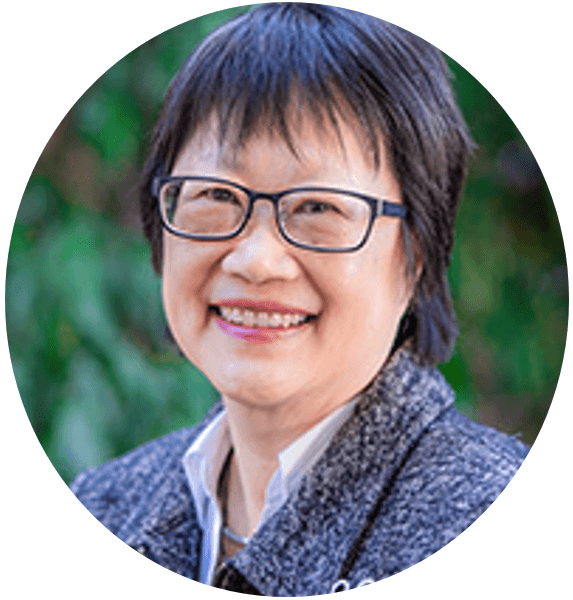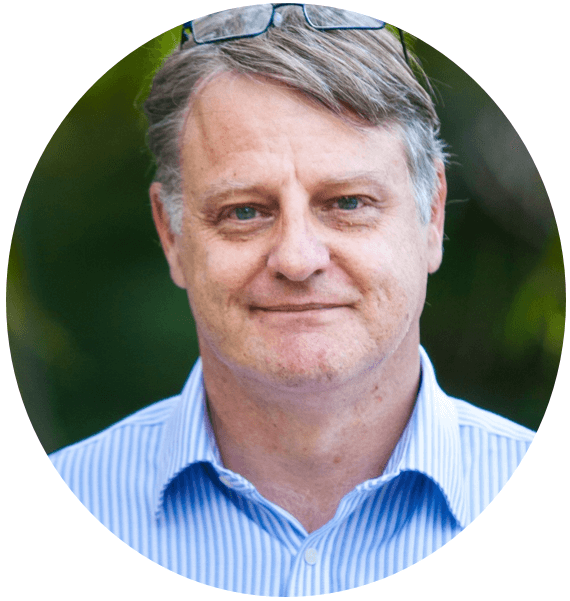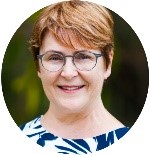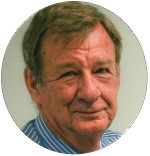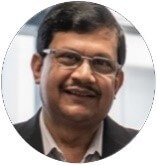The Gas & Energy Transition Research Centre Annual Research Review is our showcase event. It's an opportunity for Research Chairs and chief investigators to provide valuable insights into the current status of the Centre's research program, highlights from throughout the year and future perspectives.
In addition to an overview of Centre research, the Review includes concurrent workshops on research developments, poster presentations and a lively panel discussion.
The event is attended by industry, government, university and community stakeholders alike.
Annual Research Review 2026
We are pleased to invite academic, government and industry stakeholders to the Gas & Energy Transition Research Centre's 2026 Annual Research Review.
The event will showcase the work undertaken by our Centre in the previous year and give stakeholders the opportunity to connect with the researchers behind it.
More information on the event will be available soon.
Annual Research Review 2024
We are pleased to present the UQ Gas & Energy Transition Research Centre’s 2024 Annual Research Review.
The half-day event will showcase the multidisciplinary research undertaken across the Centre this year and provide insights into what the Centre's priorities will be in 2025 and beyond.
Time: 1:00 pm - 6:00 pm (registration from 12:30pm; canapes and drinks from 4:30pm)
Date: Thursday 28th November 2024
Location: Advanced Engineering Building, The University of Queensland
Posters
Energy Security
- Adsorption behaviour of silica nanofluid on coal and the injectivity enhancement mechanism (Tiancheng Zhang, Zhongwei Chen)
- Quantifying coal mechanical properties using digital image correlation method (Yixiao Huang, Zhongwei Chen)
- Relative Permeability of Coal: Experiment and Model Development (Tiancheng Zhang, Yiran Zhu, Jimmy Xuekai Li, Victor Rudolph, Zhongwei Chen)
- Impact of Gas Adsorption on Relative Permeability of Coal (Tiancheng Zhang, Yiran Zhu, Jimmy Xuekai Li, Victor Rudolph, Zhongwei Chen)
- Evolution of Proppant Embedment and Its Impact on Shale Permeability (Sijin Qian, Mingyuan Lu, Jimmy Xuekai Li, Grant Dawson, Xiaoxiao Mao, Zhongwei Chen)
- Experimental Study of Coal Directional Sorption-induced Strain Under Different Temperatures (Yixiao Huang, Victor Rudolph, Christopher Leonardi, Zhongwei Chen)
- Investigating the Relative Permeability of Coal Fractures Using Stochastic Analysis and High-Fidelity Computational Modelling (Dmytro Sashko, Dr Travis Mitchell, Łukasz Łaniewski-Wołłk, A/Prof Christopher Leonardi)
- Coal matrix shrinkage and its effects on cleat porosity, permeability and late life coal behaviour (Zhentao Li, Karen Steel, Joan Esterle, Tara Congo, Sen Yang)
- Trends in coal seam gas carbon isotopes in the Reids Dome beds (Alison Troup, Joan Esterle, Julie Pearce)
Decarbonisation
- Assessing Fault Reactivation and Surface Uplifting Risk in CO2 Geological Sequestration (Erfan Saber, Saiied Aminossadati, Zhongwei Chen)
- CO2 storage potential in Basalts (J. K. Pearce, G. Dawson, H. Yinc, F. Brink, F. Hussain, S. Golding, J. Esterle, M. Firouzi, V. Rudolph, Z. Chen)
- Assessing the suitability of central Queensland mining region for growing Pongamia trees as a source of biofuel (Mandana Shaygan, Monia Anzooman, Neil McIntyre, Peter deVoil, Joe Lane, Daniel Rodriguez)
- The calm before the storms - early Permian coal seam development along the western margin of the Bowen Basin (Alison Troup, Joan Esterle)
- Experimental CO2-Water-Rock Interactions and Potential Impacts of CO2 Sequestration Below the Hutton and Gubberamunda Sandstones, Surat Basin, Great Artesian Basin (M. Matsui, J. K. Pearce, G. Dawson, K. Baublys)
Communities & Coexistence
- Developing a Participatory Framework for Ongoing Social, Cultural & Economic Monitoring in the Beetaloo Sub-basin, Northern Territory (Kathy Witt, Debashish Dev)
- Understanding Social Risks in CSG Brine Management (Kathy Witt, Amrita Kambo, Debashish Dev)
- Lessons learned in gas industry operations (Kathy Witt, Amrita Kambo, Debashish Dev)
- Future Gas Strategy – Public Submissions and Media Analysis (Debashish Dev, Kathy Witt)
- Creating ‘Lasting and Meaningful Benefits’: What communities in Queensland’s Renewable Energy Zones expect from new energy projects (A/Prof. Kathy Witt)
- An online tool for measuring cumulative impacts: What does energy resource development mean for local communities? (A/Prof. Kathy Witt)
- What is Coexistence and how do we know if we have it? Quantifying the interactions between agriculture and CSG (2015) (A/Prof. Kathy Witt)
Environment
- Gas sources in the Springbok Sandstone and GAB aquifers (Julie Pearce, Harald Hofmann, Kim Baublys, Sue Golding, Keith Fifield, St.John Herbert, Zi Bhebhe, Nicole Leonard, Phil Hayes, Ian Matthews, Andrew Moser)
- Groundwater – reservoir (dis)connectivity with strontium isotopes (Dr Julie Pearce)
Directions
The event will be held on The University of Queensland's St Lucia Campus. For information about the campus, including public transport and parking options, visit this page.
Annual Research Review 2023
The Centre is pleased to present its 2023 Research Review, which covers activities and outcomes from our research focus areas, and a look forward to 2024.
Thursday 23rd November 2023
UQ Advanced Engineering Building, Room 301 - 1:00 pm - 5:00 pm
Program
| 1:00pm | Registration | ||||||||||||||||||||||||||
| 1:30pm | Welcome and overview Assoc. Professor Phil Hayes, Acting Director, UQ Centre for Natural Gas | ||||||||||||||||||||||||||
| 1.55pm | Panel discussion on: ‘The social license challenges for Queensland’s Energy Transition’ to include:
| ||||||||||||||||||||||||||
| 3.10pm | Afternoon tea and posters presentations | ||||||||||||||||||||||||||
| 3.45pm | Concurrent workshops | ||||||||||||||||||||||||||
| |||||||||||||||||||||||||||
04:50 pm Closing remarks | |||||||||||||||||||||||||||
05:00 pm Canapes (Level 5, Advanced Engineering Building) | |||||||||||||||||||||||||||
Centre research is only possible due to funding provided by the industry (Arrow Energy, APLNG and Santos) and The University of Queensland.
In 2022 the Centre was pleased to present its Research Review, after a three year break.
Annual Research Review 2022
UQ Advanced Engineering Building, Room 301
8 December 2022, 12:30 pm - 5:00 pm
Program
| 12:30pm | Registration and Lunch | ||||||||||||||||||||||||||
| 1:00pm | Welcome and overview | ||||||||||||||||||||||||||
| 1.15pm | The role of the Independent Expert Scientific Committee on Coal Seam Gas and Large Coal Mining Development Assoc. Professor Phil Hayes, UQ Centre for Natural Gas | ||||||||||||||||||||||||||
| 1.20pm | An overview of the Strategic Regional Environmental and Baseline Assessment in the Beetaloo Basin Dr Kathy Witt, UQ Centre for Natural Gas | ||||||||||||||||||||||||||
| 1.25pm | A review of co-existence principles and institutions Ms Rachael Hanna, QLD Dept of Resources | ||||||||||||||||||||||||||
| 1:45pm | Concurrent workshops | ||||||||||||||||||||||||||
| |||||||||||||||||||||||||||
3:30 pm Presentation and discussion: How the Russian invasion of Ukraine is impacting the global energy transition (with a focus on Queensland) | |||||||||||||||||||||||||||
04:30 pm Closing remarks | |||||||||||||||||||||||||||
04:45 pm Canapes (Level 5, Advanced Engineering Building) | |||||||||||||||||||||||||||
Centre research is only possible due to funding provided by the industry (Arrow Energy, APLNG and Santos) and The University of Queensland.
Posters
Energy Supply
- Using artificial intelligence to predict coal seam compressibility, compaction and subsidence
- Using artificial intelligence (AI) to increase gas supply
- Depleted reservoir geomechanics: Wellbore stability as a function of stress, strength and bulk coal properties
- Proppant Transport in Coal Seams Migration, Segregation, Screen-Out and Embedment
- CO2 geological storage in the southern Surat Basin assessing CO2 -water-rock reactivity
- Gas sources and concentrations in Surat Basin shallow aquifers Methane concentration method comparison, and isotopic study
- Quantifying Coal Mechanical Properties Using Digital Image Correlation Method
- Experimental Study of Coal Directional Sorption-induced Strain Under Different Temperatures
- Laboratory study of capillary trapping Impact on coal seam gas ultimate recovery
- Experimental Investigation of the Flow Properties of Layered Coal-rock Analogues
- A pore-network framework for fluid displacement in disordered packing
- Stress-dependent Gas-Water Two-phase Flow in Coal Cleats
- Coal matrix shrinkage and its effects on cleat porosity, permeability and late life coal behaviour
- Dynamic Permeability in the Porous Medium with Broadband Pore Size Distribution
- Integrating petrophysical, diagnostic fracture injection test (DFIT) analyses, hydraulic fracture, and reservoir modelling todesign, evaluate and improve stimulation effectiveness in low-permeability coals
- ARC-L New Stratigraphy and Geostatistics for Gas and Water Resources
- U-Pb detrital zircon geochronology of the Middle to Upper Jurassic strata in the Surat Basin: new insights into provenance, paleogeography, and source-to-sink processes in eastern Australia
- Horizontal Coal Seam Gas Well Orientation Optimization: The Impact of Stress Regime
- Multiple Fracture Growth in Modified Zipper Fracturing
Decarbonisation
- New & improved options for carbon offsets - stimulating innovation in options & practice
- CCUS - Right Sizing - How big (Mtpa) should I build my hub capture and transport infrastructure?
- CO2 EOR and Storage in a Mature Rim Oil with Gas Cap Reservoir
- Stochastic estimation of fugitive methane emissions using drones
- Controlling factors of underground hydrogen storage injection and production profiles in braided-fluvial reservoirs
Environment, Social and Governance
The presentation deck and copies of the research posters are available for download below. Scroll down to the bottom of this page for the program for this year's event.
Presentations & summaries
1. Research Review: presentation deck (pdf)
2. Research Review: panel session summary
3. Concurrent workshops: workshop summaries (pdf)
Posters
Research challenge #1: Reducing operating expenditure
- Computational modelling of counter-current multiphase flows
- Prediction of flowing bottom hole pressure (FBHP) using advanced data analytics
- Enhancing CSG well production through flowing bottom hole pressure (FBHP) control
- Nano-mechanics of coal
- Screening of solvents and polymers for phase inversion to inhibit clay swelling of mudstone
- Swelling inhibition of bentonite clay by Mg(OH)2 precipitation using different Mg salts
Research challenge #2: Heterogeneity and connectivity
- Perfectly matched layer for the solution of acoustic wave equation using finite elements
- Proxy modelling for horizontal well coal seam gas production
- Determining dissolved methane in groundwater of the Surat and Bowen Basins
- Surface movement and shallow processes
- Impacting factors on horizontal coal seam gas well production and proxy model comparison
- Spectral decomposition of the heterogeneous Springbok Sandstone and Walloon Coal Measures in the Surat Basin, Australia
- New geostatistics to model heterogeneity – The Copula Plug-in
- Modelling the contribution of individual seams to coal seam gas production
- Trends in seismicity in the CSG producing region of the Surat Basin in Queensland
- Automatic 3D geological modelling with ArcGIS Engine: A new approach for surface and subsurface data integration
- Rapid geological modelling for the Surat Basin based on well logs
- An AVO-friendly noise-filtered stretch-free reflection-based multimodal optimisation based non-hyperbolic approach to moveout analysis and stacking (a showcase of results)
- Preliminary study of reservoir properties of the Toolebuc Formation, Eromanga Basin
- CO2-water-rock reactions of low-salinity aquifer and oil field drill cores
- Characterisation of Surat Basin interburden, and overlying sandstone
- Models to demonstrate the importance of geological correlations
- Modelling the contribution of individual seams to coal seam gas production
- First geological interpretations of gas content of coal seam field, Cesar sub-basin, Colombia
Research challenge #3: Converting contingent resources to commercially recoverable resources
- Sustainable enhancement of CSG production in Queensland
- Damage and fracture analysis of rock under uniaxial compression
- Increasing the productivity of unconventional gas reservoirs via graded proppant injection (GPI)
- Advanced environmental technologies for coal permeability enhancement
- Pressure-dependent contact angle of coal
- Development of predictive models and go-forward strategies for micro-particle injection in naturally fractured reservoirs
- Sorption and swelling of coal under unconstrainted conditions
- Using machine learning methods to identify coals from drilling and logging-while-drilling (lwd) data
- Optimisation of dewatering rates to maximise coal seam gas production
Social
Program
Annual Research Review 2019
UQ Advanced Engineering Building, Conference Room 200
12 December 2019, 12:30 pm - 6:00 pm
| 12:30 pm | Welcome | ||||||||
Address from the Executive Dean |
| Prof Vicki Chen | |||||||
01:10 pm The year in review | |||||||||
Achievements & traction throughout 2019 |
| Prof Andrew Garnett | |||||||
01:30 pm Research portfolio | |||||||||
| Geosciences Prof Suzanne Hurter |
| Water Assoc Prof Phil Hayes | ||||||
Petroleum Engineering Dr Christopher Leonardi |
| Social Dr Kathy Witt | |||||||
02:10 pm Panel: What is the role of gas in the transition (and for that matter what is the transition) | |||||||||
| Statutory authority | Industry | |||||||
Industry |
| Energy research expert | |||||||
02:50 pm Afternoon tea & student posters | |||||||||
03:20 pm Concurrent workshops | |||||||||
OPTION A |
| OPTION B |
| OPTION C | |||||
Led by |
| Led by |
| Led by | |||||
04:30 pm Closing | |||||||||
04:45 pm Canapes on level 5 | |||||||||
| |||||||||
The research into Australian natural gas is only made possible by vital funding provided by the industry (Arrow Energy, APLNG and Santos) and the University of Queensland.
The University of Queensland Centre for Natural Gas (formerly known as the Centre for Coal Seam Gas) conducts real-world research focussed on optimising Australia’s natural gas industry terms of environmental performance, social performance, and optimisation of cost of operation and production (which in turns affect both availability and market price). With natural gas flagged to play a major role in reducing emissions over the next 20-30 years as the world transitions to renewables and low carbon energy solutions, the role of research and innovation in gas has a key part to play in the portfolio of other growing energy sources. Australia’s abundant gas resources create the potential for the country to be a major global supplier of natural gas to help meet the increasing demand for cleaner, affordable energy over the transition decades to lower emissions. The UQ Centre for Natural Gas provides cutting-edge, multi-disciplinary research and advice in the sustainable development and management of Australia's abundant natural gas resources.
Event: Annual Research Review 2018
Date: 7th December 2018
Posters
Water
- Resetting Our Understanding of the GAB
- Mechanisms of natural surface movement in the Surat Basin
- Estimating groundwater recharge uncertainty in the Chloride Mass Balance method and its spatial disaggregation
Petroleum Engineering
- Adaptive mesh refinement for gravity forward modeling
- Control of clay swelling and fines production using M2 precipitation
- Response relative permeability coal surface chemistry & effective pressure through steady-state flooding measurements using X-ray CT Scanner and artificial Australian coal cores
- Enhancing CSG well production through BHP control
- Influence of elastoplastic embedment on CSG production enhancement using graded particle injection
- Using an artificial neural network to identify coals from drilling and logging-while-drilling data
- Overview P&A operations Coal Exploration Bore R2315
- Challenges in modelling of hydraulic fracturing in low-permeability coal seams with complex cleat networks and stress regimes
Geoscience
Carbon Capture & Storage (CCS)
- Carbon Storage in Depleting Groundwater Aquifers A Solution to Water Stress
- CO2 induced reservoir storage capacity alteration rock mechanics
- Dynamic simulation for gas injection
- What people don’t want to know about Carbon Capture and Storage CCS
Independent
- Dynamic modelling of coal seam gas production
- Governance of hydraulic fracturing in unconventional resources
- Using historic data to influence real time hazardous operations
- Proppant transport in complex fracture features
- Computational Modelling of Counter-Current Multiphase Flows
- Enhancing CSG well production via foam assisted lift method
Annual Research Review 2017
Event: Annual Research Review 2017
Date: 12 December 2017
Posters
Water
Regional Groundwater Recharge in the Surat Basin
Groundwater Recharge Estimation in the Surat Basin
Characterisation of Current Groundwater Uses in the Surat and Bowen Basins
Social Performance
Indicators Maintenance & Reporting
Geoscience
First Palynological Results from GSQ Roma 2, Surat Basin, Queensland
Machine Learning for Coal Seam Gas Production
An Investigation of Numerical Facies Models of Coal Seam Gas Reservoirs: Walloon Subgroup, Surat Basin
Petroleum Engineering
Thermo-viscous Fluid Effects on Proppant Transport
Multiphase Lattice Boltzmann Model Development for Flow Regime Analysis
Research by Independent PhD Students
Research undertaken by these students is related to, but not funded by, the Centre:
Electrohydraulic Discharge (EHD) Stimulation in Water Conditions and Its Application for Coal Fracturing
Governance of Managed Aquifer Recharge (MAR) in the CSG Context
The Architecture and Evolution of a Delta-Canyon-Fan System: Insights from a Stratigraphic Forward Model in Perth Canyon, Western Australia
Annual Research Review 2016
9 December 2016
Posters
Water
The Centre’s water related research addresses the impacts of natural gas extraction on groundwater and surface water resources; the hydraulic connectivity of natural gas and agricultural aquifers; and the development of adaptive water and environmental management strategies.
- Characterisation of current groundwater uses in the Surat and Bowen Basins
- Recharge Estimation in the Surat Basin - Stage 3a Data Analysis
Social Performance
The Centre seeks to provide new knowledge to help government and industry manage social and economic impacts at a regional scale, develop strategies that enhance the social performance capacity of the industry and deliver positive, long-term development outcomes for communities impacted by natural gas. Researchers design and apply innovative community engagement methodologies, examine issues associated with the management of cumulative impacts and develop evidence-based contributions to policy debate about the regulation of the sector.
- Agriculture and CSG
- Evaluation of Science Enrichment Programs
- Indicators Maintenance & Reporting
- Understanding Stakeholder Trust in Queensland's Coal Seam Gas Industry
- Female Business Operators Experiences and Perceptions of CSG Development
- A Dust Management Program
- The governance of hydraulic fracturing in unconventional resources: the elements, form and effectiveness of the regulation
Petroleum Engineering
Research in the area of Petroleum Engineering includes aspects of reservoir characterisation, development and dynamic behaviour, drilling, well completions as well as stimulation and enhancement technologies. Other research examines aspects of the techno-economics of gas exploitation and recovery and field related engineering including optimisation, process control and site rehabilitation.
- Chemical oxidant stimulation of coal seams to increase coal seam permeability
- Plugging and Abandonment of CSG Wells with Bentonite
- A packed bed methodology to study the effect of coal surface wettability on relative permeability using a steady-state core flooding apparatus
- Mathematical modelling of wellbore pressure profiles in CSG wells
- Advanced Environmental Technologies for Coal Permeability Enhancement
- Pulse Arc Electohydraulic Discharge Stimulation of Coal Seam Interburden for Gas Development
- Effects of nanoparticles on clay stabilisation and coal permeability
Geoscience
The Centre’s significant expertise in geoscience includes geology, geophysics and geochemistry. Research is seeking to provide new knowledge on basin analysis and characterisation, the origins of natural gas, exploration targeting within the geological setting, and natural factors that establish the nature of the reservoir for natural gas.
- Hyperspectral stratigraphy and provenance of the Walloon Subgroup, Surat Basin, Queensland
- Palynology of the Jurassic Cretaceous transition, Surat Basin
- Complementing coal seam gas facies modelling workflows with decompaction based processes
- Improved Flow Modelling through integrated Sequence Stratigraphic Correlations - Lauren CSG Field, Walloon Subgroup, Surat Basin
- Faults and Fractures in the Surat Basin: A Seismic Perspective
- Stratigraphic controls on distribution of facies in the Hermitage and Coxon Creek CSG Fields, Walloon Subgroup, Surat Basin
- Developing a synthetic grid block model for coal seams in the Surat Basin
- Geometry and Distribution of Channel and Coal in Walloon Coal Measures, Surat Basin, Australia
- Can Decompaction Increase the Predicting Accuracy for Depositional Facies in Geological Modelling?
- Application of Multiple-point Statistics and Image Logging Data in Modelling Coal Cleats Distribution
- In-situ Stress and Fracture Controls on Permeability Distribution within Walloon Subgroup, Surat Basin
- Structural influence on in-situ stress and fracture variability within Walloon Subgroup, Surat Basin
- Re-adjusting paleodrainage in the Surat Basin infill from new data
- Surrogate models via Polynomial Chaos Expansions
Annual Research Review 2015
7 December 2015
Posters
Water
The Centre’s water related research addresses the impacts of CSG extraction on groundwater and surface water resources; the hydraulic connectivity of coal seam and agricultural aquifers; and the development of adaptive water and environmental management strategies.
- Recharge estimation in the Surat Basin – Stage 2 Field site establishment
- Characterisation of current groundwater uses in the Surat and Bowen basins
- Non-seismic geophysics for CSG monitoring, initial results from the pilot field trial
- A 3D subsurface groundwater atlas for CSG fields
Social Performance
The Centre seeks to provide new knowledge to help government and industry manage social and economic impacts at a regional scale, develop strategies that enhance the social performance capacity of the industry, and deliver positive, long term development outcomes for communities impacted by CSG. Researchers design and apply innovative community engagement methodologies, examine issues associated with the management of cumulative impacts and develop evidence-based contributions to policy debate about the regulation of the sector.
- Small and medium enterprises (SME) sub-project: Measuring economic trends and benefits of CSG development on local businesses
- Evaluation of STEM enrichment programs for schools - SSP
- Understanding stakeholder trust in Queensland’s coal seam gas industry
- Interactions between agriculture and coal seam gas development
- PhD project: How do universities engage with controversial industries?
- PhD project: Science, risk and legitimacy: Investigating the governance of science in the CSG policy arena
Petroleum Engineering
Research in the area of Petroleum Engineering includes aspects of reservoir characterisation, development and dynamic behaviour, drilling, well completions, and stimulation and enhancement technologies. Other research examines aspects of the techno-economics of gas exploitation and recovery, and field related engineering including optimisation, process control and site rehabilitation.
- PhD project: Measurement of anisotropic properties of coal under triaxial stress condition
- PhD project: Influence of rank and lithotype on coal wettability
- PhD project: High-pressure measurements of gas-water relative permeability in coal seams using x-ray CT scanner
- PhD project: Nanoparticles with potential to stabilize smectite clays in coal seam gas reservoirs
- Mathematical modelling of the slug flow regime in CSG wells
- Masters research project: Plugging and abandoning (decommissioning) oil & gas wells with bentonite
Geoscience
The Centre’s significant expertise in geoscience includes geology, geophysics and geochemistry. Research is seeking to provide new knowledge on basin analysis and characterisation, the origins of coal seam gas, exploration targeting within the geological setting, and natural factors that establish the nature of the reservoir for CSG.
- Surat supermodel II – An integrated geological framework for CSG
- Study area and stratigraphy
- Facies modelling
- Geological modelling
- Honours project: Provenance of the Springbok Sandstone, Surat Basin, QLD
- PhD project: Palynology of the Jurassic-Cretaceous transition, northern Surat Basin
- PhD project: The Walloon-Birkhead transition - Changes in coal and interburden character
- PhD project: Controls on the geometry, stratigraphic distribution and quality of coals of the Middle to Upper Jurassic strata in eastern Australia
- PhD project: Coal strength from synthetic rock mass: Critical points to reproduce rock mechanical behaviour, an approach to improve inferences of permeability and reservoir performance
- PhD project: Automatic NMO correction in anisotropic media and non-hyperbolic NMO velocity field estimation
- Non-linear geostatistics
- Big Data for CSG analytics
- Improved spatial models of short range permeability variations
- Polynomial chaos for the geosciences
Independent PhD and Masters Research
These research projects cover a broad range of issues including regional geological structures, geological modelling, produced water treatment, communication tools, community investment, community health, business innovation and gas emissions. A few of these students’ projects are featured in this book, providing insight into the great diversity of research being undertaken. While some of the featured research is well-advanced, other projects are in their initial phases and the specific research questions are still being developed.
- Seismic insights into the sedimentary architecture of Walloon sub-group
- Core analysis and Pulsed Arc Electrohydraulic Discharge (PAED) stimulation of coal seam interburden
- Electrofacies analysis using high-resolution wireline geophysical data as a proxy for intertinite and vitrinite distribution in late Permian coal seams, Bowen Basin
- Pore-scale simulations of bubble-water flow in coal seams by Lattice Boltzmann Method
- Numerical simulation of hydraulic fracturing in unconventional reservoirs
- Hydrogeological and microbial controls on the isotope and molecular composition of coal seam gases and production waters of the Walloon Subgroup; Surat Basin, Australia

